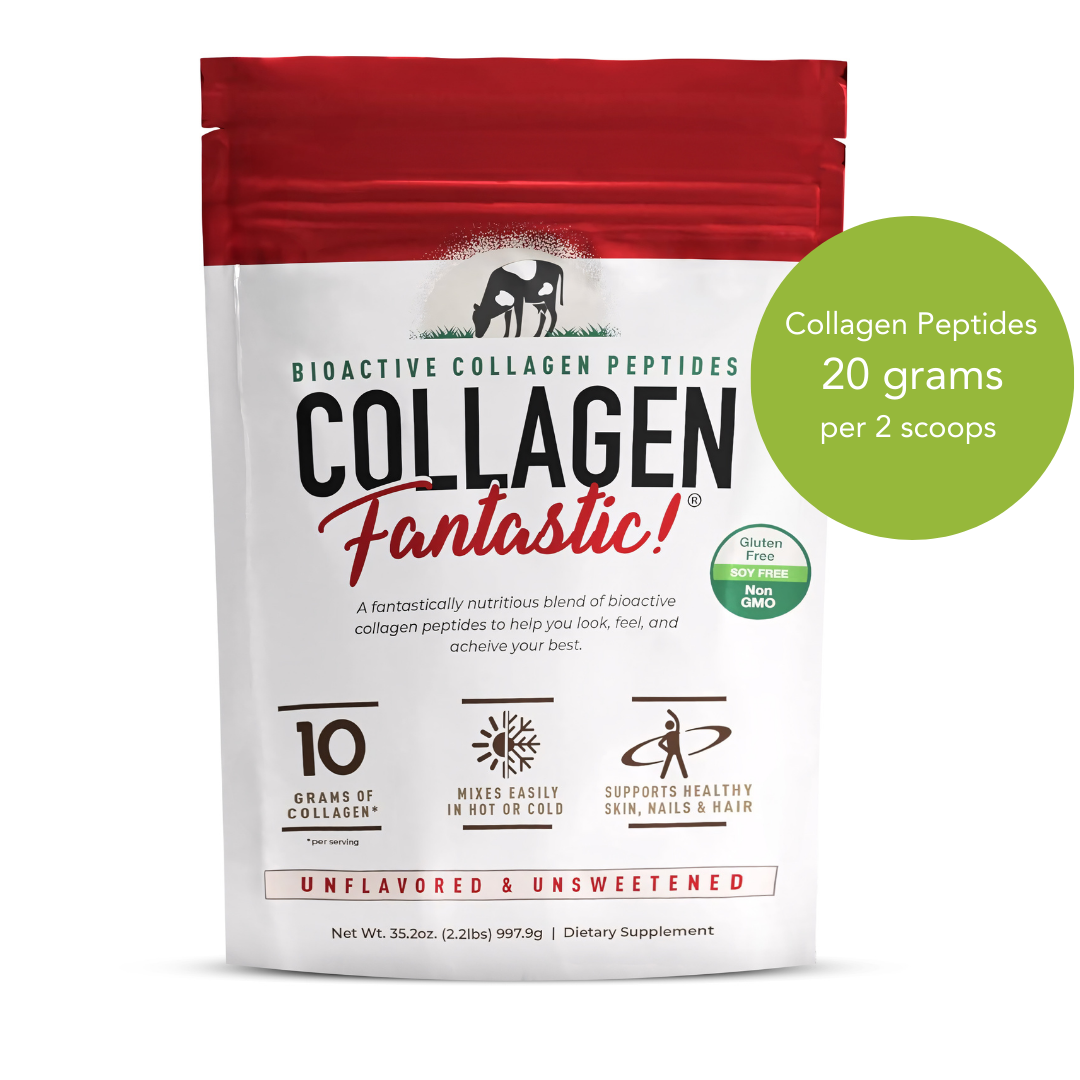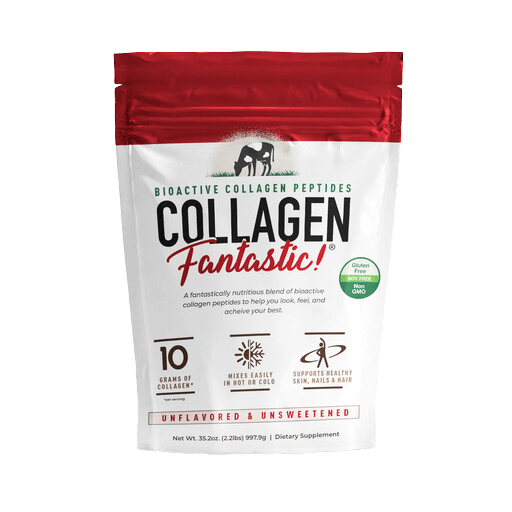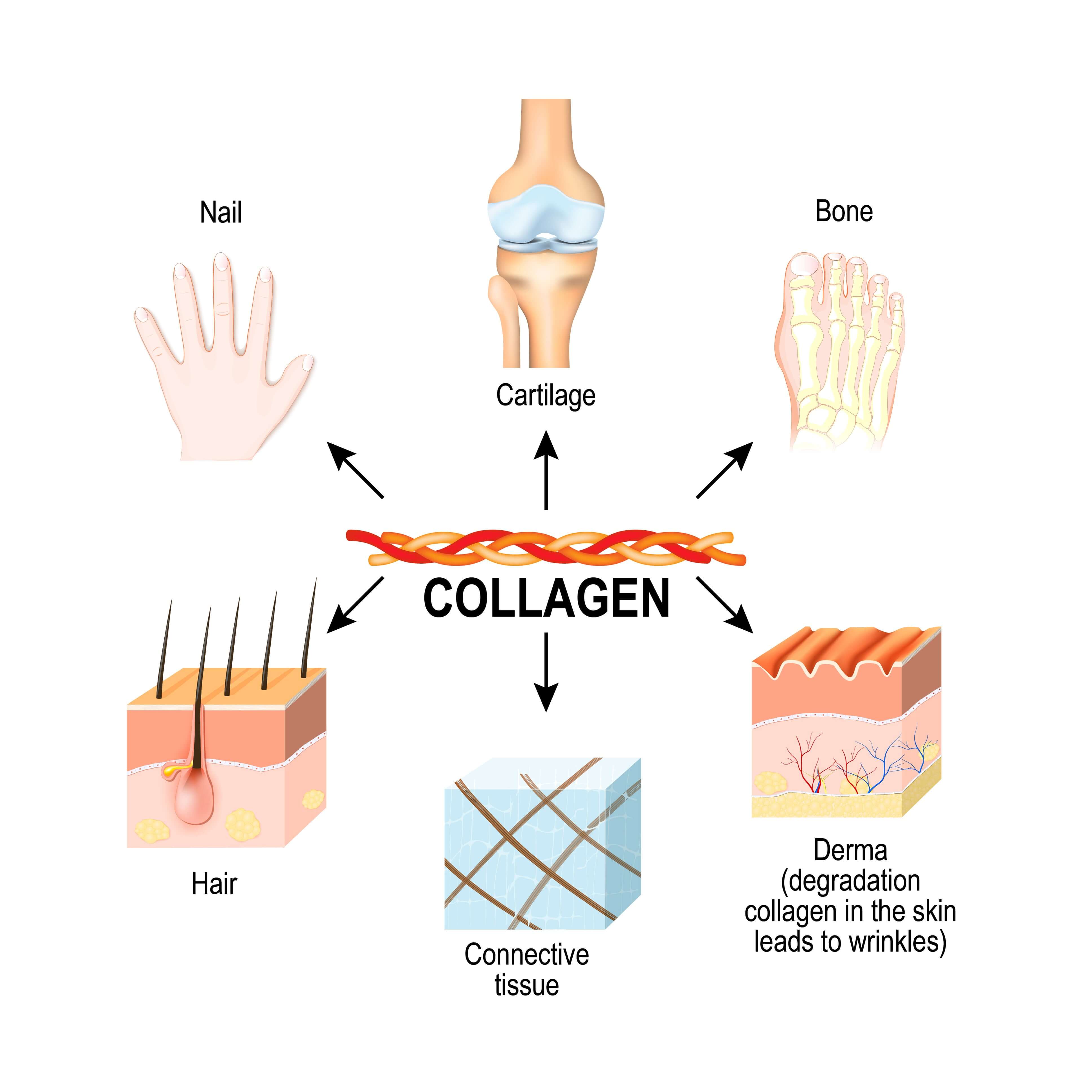Collagen makes up around 30–40% of your body’s natural protein. However, as you grow older, your normal collagen production declines due to ageing and other factors such as a bad diet and persistent tension.
Even though you can't stop collagen from breaking down naturally, you could decrease or remove the external sources of collagen breakdown and supplement your meals with protein. From your epidermis and fingernails to your muscles and bones, a collagen supplement could be beneficial. However, before taking collagen or indeed any supplements, first consult with your physician.
What do you mean by Collagen?
The protein collagen is perhaps the highest prevalence in the living person body. Your skeletons, epidermis, muscles, capillaries, gut lining, and tendons all contain it. It is responsible for holding your full body connected. You will not be capable of standing, walking, or moving if you didn't have collagen.
Collagen is made up of several distinct amino acids, however, the bits that make the most of the final product include Arginine, Glycine, Glutamine and Proline.
What do you mean by Grass-Fed Collagen?
Collagen made from grass-fed cows is known as grass-fed collagen. The grass-fed collagen peptides come from animals that have been permitted to graze freely in their meadows, eating the grasses.

Medications and hormones aren't utilized on the cows, providing you better peace of mind about what you're eating.
Skin Advantages of Collagen
Your system normally creates less collagen as you get older. In reality, after you turn 20 years old, you shed roughly 1 per cent of your collagen each year. Your skin might grow dry and less flexible as a consequence, resulting in wrinkles and other symptoms of ageing. Collagen supplements can help to prevent these indications of ageing by enhancing skin elasticity, hydration, and smoothness.
The impacts of collagen supplements on ageing skin were studied by providing subjects oral collagen supplements for two months. Collagen supplementation enhanced both skin thickness and moisture, according to the report's findings, which were released in the Journal of Cosmetic Dermatology in 2015.
However, more importantly, the effects persisted even after supplementation was discontinued. Following the collagen supplementation ended, the volunteers' skin continued to improve for another 12 weeks.
The Advantages of Collagen on Hair
Collagen is a major component of the extrinsic matrix, which is found in your hair follicles. Supplemental collagen has hair advantages because of this. The deficiency of sufficient collagen in the extrinsic matrix has been linked to hair loss and abnormalities in the regular hair cycle in animal research.
In a 2015 research study released in The Journal of Investigative Dermatology, scientists discovered that collagen supplementation could aid in regrowing hair and overturning baldness.
Advantages of Collagen for Nails
Collagen has a lot of advantages for nails. The protein could assist in strengthening and preventing cracking of nails, as well as allow them to develop harder and stronger.
During one analysis, members were provided with a collagen supplement each day for twenty-four weeks and the results were released in the Journal of Cosmetic Dermatology in 2017. Collagen supplements increased nail development by 12 per cent and reduced the incidence of damaged nails by 42 per cent, according to scientists.
88 per cent of individuals saw an enhancement in looks and stamina four weeks after stopping collagen treatment.
Collagen may help with joint pain alleviation.
The joint ache might render it harder to work out, deterring you from reaching your goals. Consuming Grass-Fed Collagen Hydrolysate from New Zealand Collagen may be able to assist you in getting back on pace. Collagen appears to be beneficial for strengthening connective tissues and reducing joint ache following a workout.
Research released in the journal Applied Physiology, Nutrition, and Metabolism in January 2017 indicated that sportsmen with knee discomfort who consumed 5 grams of collagen peptides every day for twelve weeks experienced reduced joint ache while active than those who received a placebo. Oral collagen might aid cartilage healing while also acting as an anti-inflammatory.











